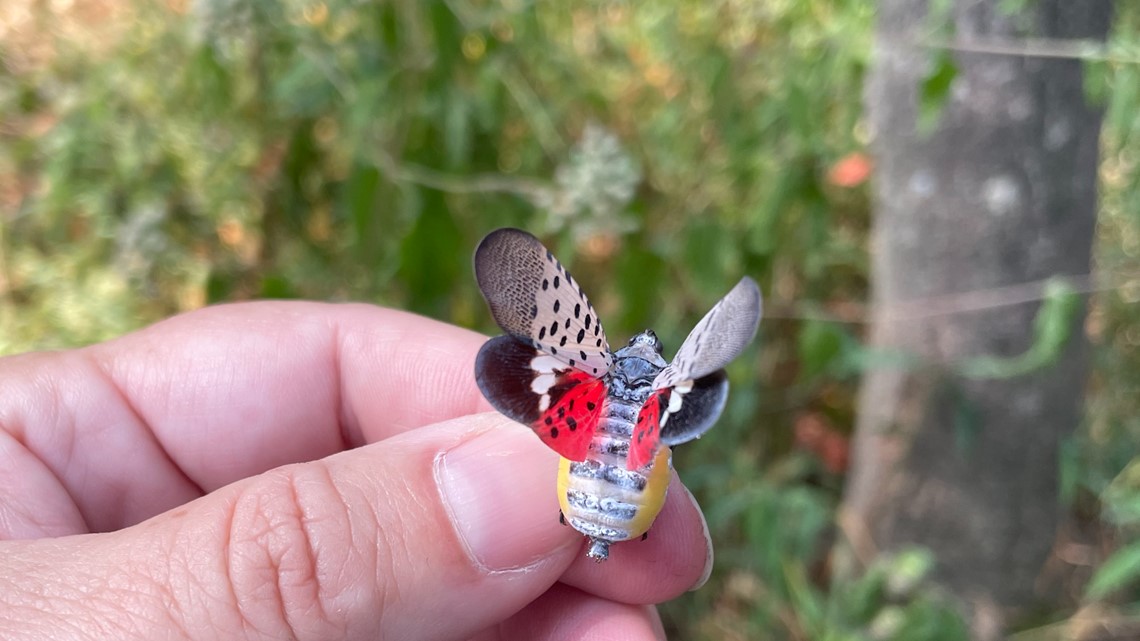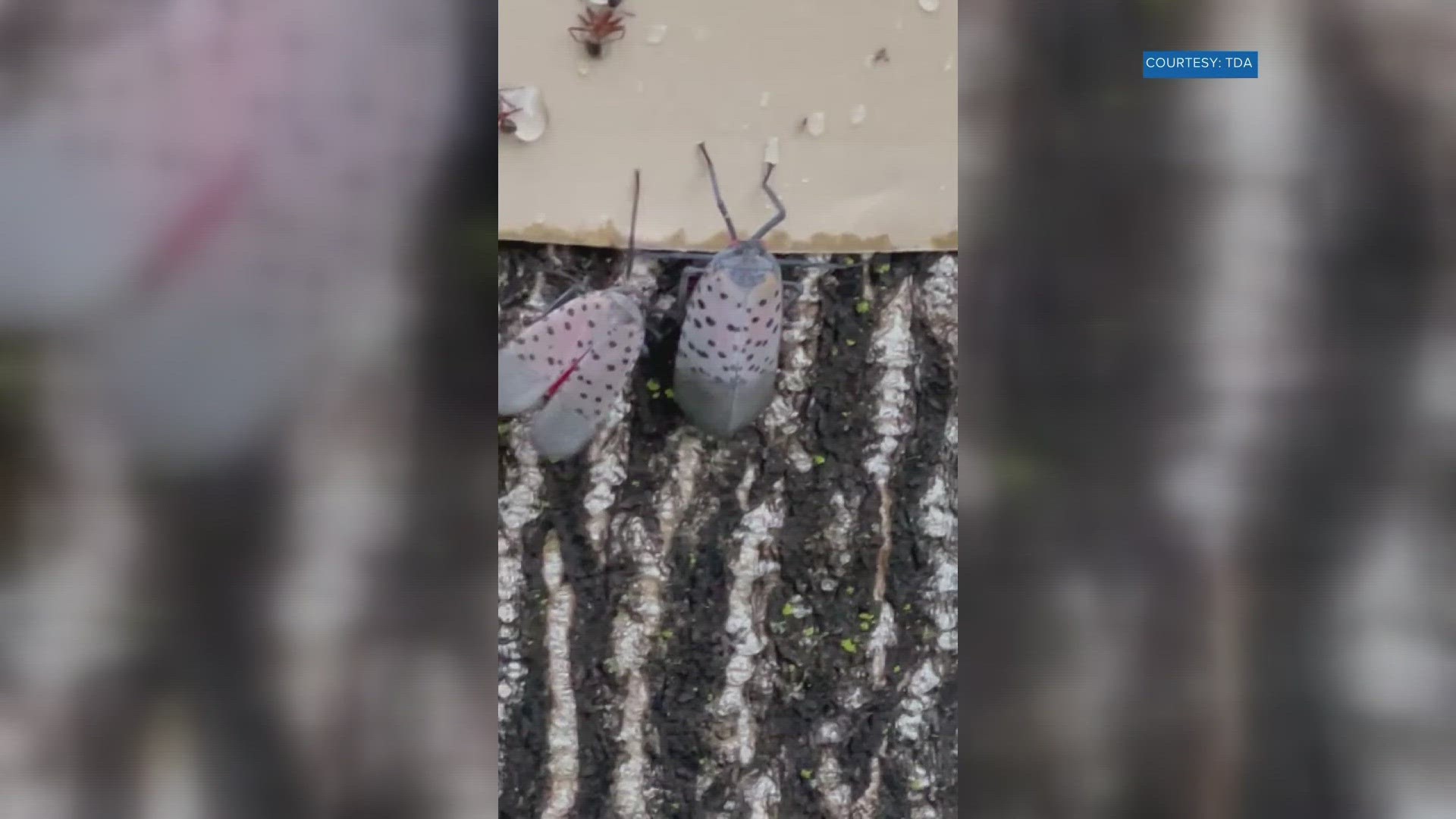KNOXVILLE, Tenn. — An invasive insect first discovered in Pennsylvania nine years ago has made its way to Tennessee, officials announced Thursday.
The Tennessee Department of Agriculture (TDA) said the spotted lanternfly was found in Davidson County, making Tennessee the sixteenth state to detect invasive species.
The insect can spread long distances when people and vehicles move infested items containing egg masses.
“Our Plant Certification Section inspectors responded to a tip from a vigilant citizen about a sighting of spotted lanternfly,” TDA Commissioner Charlie Hatcher, D.V.M. said. “This non-native insect is harmful to a range of crops and natural resources in our state. Wood products businesses and fruit growers could be especially vulnerable, and we want your help in watching out for this pest and eliminating any you find.”
Adults emerge in late summer and early fall and are about one inch long and one-half inch wide with "visually striking wings," the TDA said.


The spotted lanternfly's preferred host plant is the Tree of Heaven. It also shows a preference for grape vines and fruit trees and can also appear in other trees such as black walnut, maple, and yellow-poplar.
Experts fear that the lanternfly can also have a negative impact on local vineyards in East Tennessee. Professor of Plant Sciences Dr. David Lockwood says lanternflies attack the nutrients the plants so desperately need.
"It'll suck the juices out of the woody tissues on the plant," Dr. Lockwood said.
Since its discovery in Middle Tennessee, some farmers feel that they have to come to terms with its arrival. Chuck Belt, the owner of Sprout Spring Vineyard and Winery, is unsure of how the insects may affect his plants.
"It's coming. I don't know that we can do much about it yet," said Belt.
As farmers and researchers learn more about the insect, they are also learning ways to fight it and protect their plants, which isn't as easy as it may sound.
"One thing you could do is to provide more nutrients to the plant through fertilization but at the same time you're doing that you're also feeding them the insects," said Belt.
Infested trees may exhibit wilting, defoliation, dieback, yield loss and death in severe cases. The invasive species usually gathers in large numbers on host plants and lays eggs on the trunks and other flat surfaces.
If you see a spotted lanternfly, first take photos and complete this form on the Protect Tennessee Forests website.
Afterward, stomp the insect and destroy egg masses by smashing or dousing it with rubbing alcohol. Check vehicles, boats or campers to make sure they aren’t carrying any insects or eggs.
"They're very beautiful pests, the adult is a very attractive bug. So you might be a little bit reluctant to do something to eliminate this thing. But we've kind of got to put those feelings aside and realize that this pretty insect could be taking food off your plate," said Dr. Lockwood.
Farmers will continue to battle through whatever Mother Nature throws at them.
"This is farming, you expect things to be different and have different pests coming at you," said Belt. "I'll take what the good Lord gives me I'll do the best I can to work hard."

